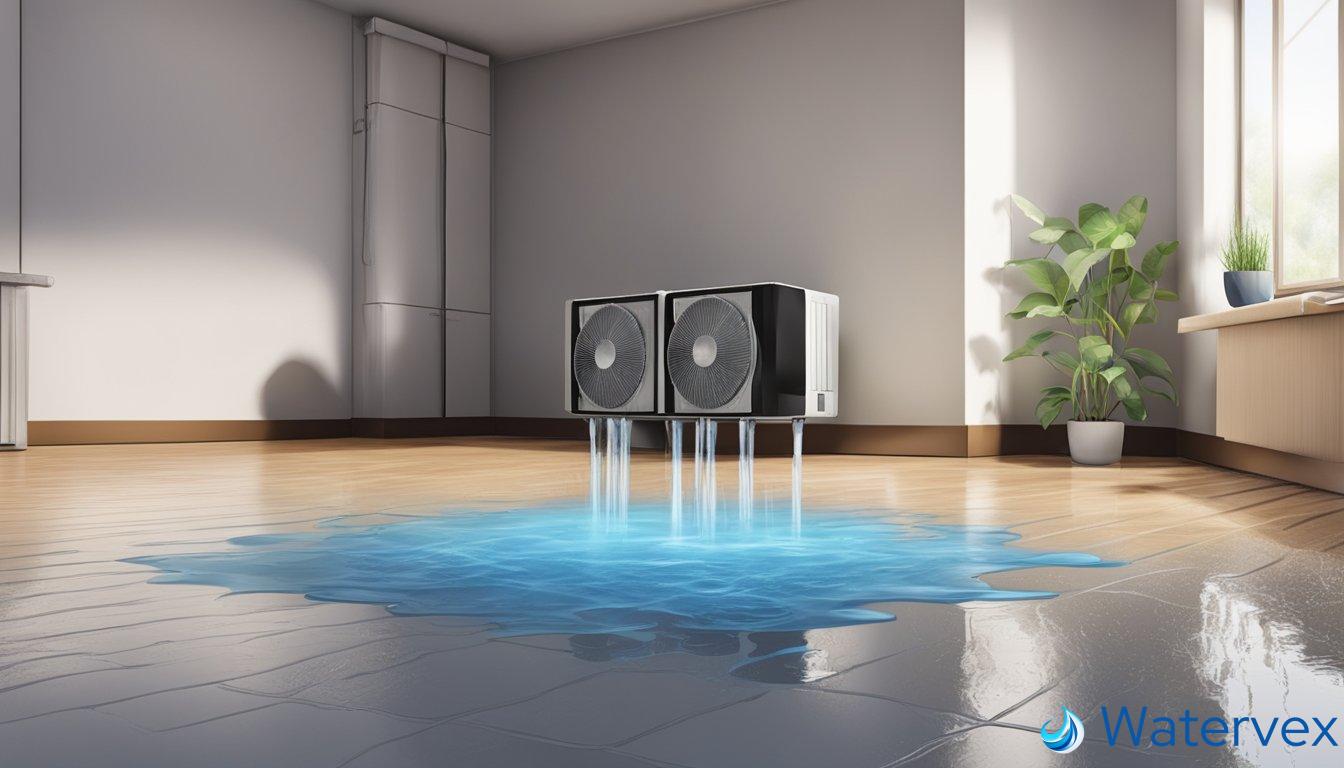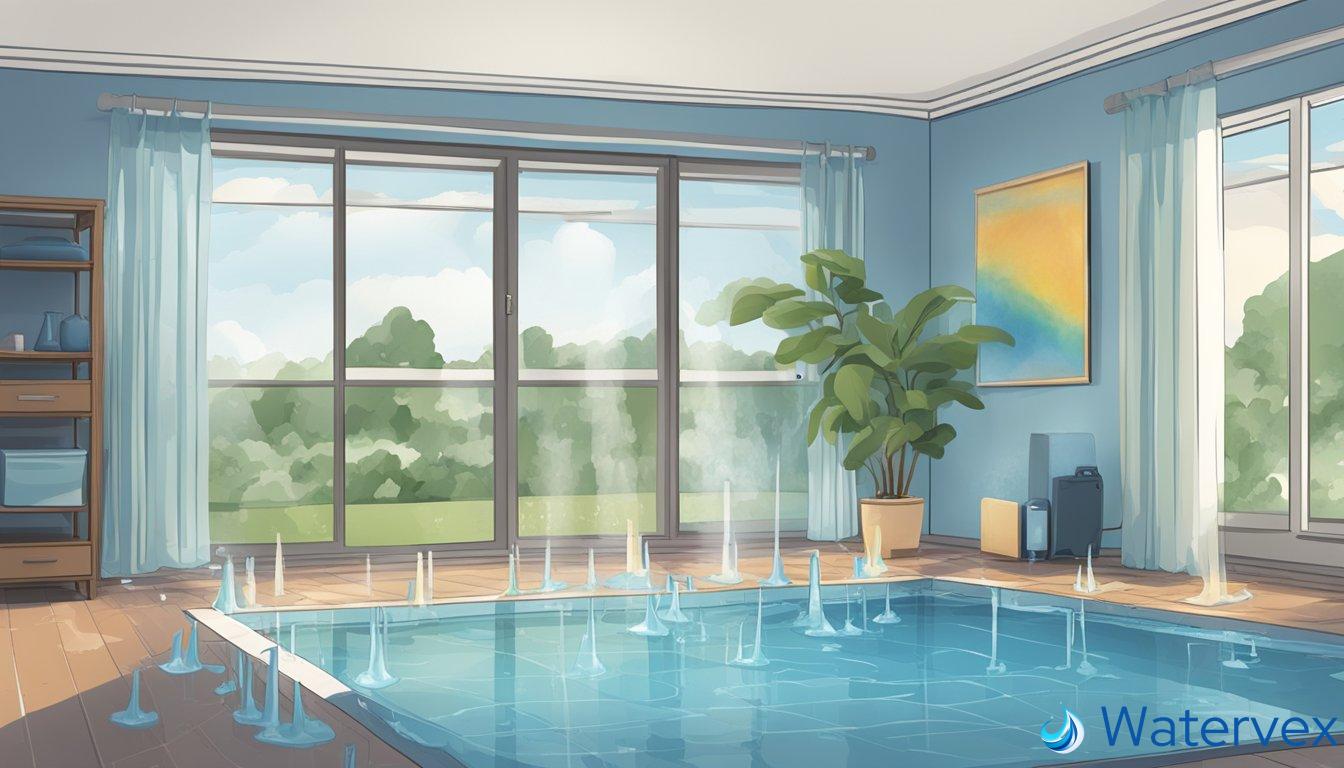Water leakage from an air conditioner is a common issue that raises concerns about potential risks. While it’s often not immediately dangerous, persistent leaks warrant your attention. Excess moisture from a leaking air conditioner can contribute to mold growth or even cause structural damage over time. Moreover, the source of the leak is important; while water is generally harmless, a leak of refrigerant poses health risks and requires professional intervention. Regular maintenance of your air conditioner is paramount to prevent leaks and ensure it operates safely and efficiently.

When your air conditioner starts to leak, identifying the cause is the first step. A clogged drain line, dirty filters, or a malfunctioning condensate pump can all lead to water pooling around your unit. Tackling these issues promptly can prevent water damage and the spread of mold in your home. It’s also important to distinguish between water and refrigerant leaks, the latter of which can cause health issues and will likely need a certified technician to address it. Preventive care, such as routine inspections and cleaning, can help avoid leakage and extend the lifespan of your air conditioning system.
Key Takeaways
- Regular air conditioner maintenance is critical to prevent water leakage.
- Identifying the cause of a leak is crucial, as it may indicate a simple fix or a more serious refrigerant issue.
- Tackling water leaks early helps avoid potential health risks and property damage.
Is Water Leaking from Your Air Conditioner a Health Risk?
Water leaking from your air conditioner might seem harmless at first glance, but it introduces a potential health risk to your home environment. One primary concern associated with leaking water is the growth of mold and mildew. These fungi thrive in damp conditions and can start to spread within 24 to 48 hours.
Mold: It’s not just unsightly; it can produce allergens and irritants that may compromise your indoor air quality, potentially leading to respiratory issues, especially in those with asthma or allergies.
Mildew: Often seen as a surface phenomenon, mildew can still cause a musty odor and contribute to a degraded environment if ignored.
If you suspect your air conditioner leaks, it’s crucial to discover the leak’s location. Water escaping into structural components like walls or ceiling spaces can weaken materials and lead to costly repairs. Beyond structural damage, continuous exposure to damp conditions can exacerbate health issues.
But why does your air conditioner leak? Common reasons include clogged drain lines or a malfunctioning condensate pump—both fixable with professional help or a bit of DIY if you’re handy.
Preventive steps include regular maintenance and ensuring that your air filters are clean, which reduces the risk of clogs and overflows. If your system is leaking and causing dampness, address it quickly to avoid an environment where mold can gain a foothold. Remember, it doesn’t take long for mold to grow, and the spores can circulate through your home via the air conditioning system, potentially affecting your family’s health.
Regular checks for leaking water, swift action to remedy any issues, and maintaining dry conditions will keep mold and mildew at bay, ensuring that your home remains a safe haven for your family’s health.
What Are the Potential Dangers of AC Water Leakage?

When water leaks from your air conditioner, it’s more than just an inconvenience—it can pose several hazards that threaten both health and property.
Health Implications of Mold and Mildew
Mold and mildew thrive in moist environments, and an AC water leak creates the perfect breeding ground for these organisms. Exposure to mold can lead to respiratory issues, especially for those with allergies or asthma. In your home, a neglected water leak can cause mold spores to proliferate, contributing to poor indoor air quality. The presence of mildew can also release unpleasant odors and compounds that may affect your family’s comfort and well-being.
Risks to Home and Appliance Integrity
Leaking air conditioners not only result in water damage to surrounding structures but can also compromise the integrity of your home. Persistent moisture may weaken walls and ceilings, leading to costly structural damage. Moreover, if the AC unit is located near electrical appliances, the water leak poses a potential fire hazard. Ensuring that your AC unit is well-maintained and leak-free helps protect your home from unexpected repairs and safeguards your appliances from premature failure.
How Can You Address and Prevent Water Leaks in Air Conditioners?

Finding your air conditioner leaking water can be alarming, as it not only affects the system’s efficiency but may also pose risks to your home environment. Taking a dual approach of preventive maintenance and timely repairs can help protect against such problems.
Regular Maintenance and Inspections
It’s essential to regularly inspect your air conditioner to catch signs of potential water leaks early. Basic steps include:
- Checking and changing air filters monthly to ensure proper airflow
- Inspecting the drain pan and condensation lines for clogs or damage
- Ensuring the unit is level so that water drains properly
HVAC professionals recommend seasonal tune-ups that can preemptively address water leaks. This involves a comprehensive check-up of various components such as the evaporator coils, where frosting over can lead to excess water.
Professional Repair and Advice
When a leak is detected, promptly consulting a technician is wise. These experts might:
- Repair the insulation around the unit if it’s causing water to escape.
- Clear any blockages in your system’s condensation drain line with specialized tools.
A certified HVAC professional can also suggest and implement leakage solutions, such as installing a condensate pump or implementing preventive measures like a safety switch to prevent overflows. Always seek a trusted technician’s advice to ensure accurate and safe repairs.
By investing in both regular maintenance and professional repairs, you can keep your air conditioning system in top shape, prevent water leaks, and by extension, keep your indoor environment safe and comfortable.

